
MYCOPATHOLOGIA
Scope & Guideline
Fostering breakthroughs in veterinary microbiology.
Introduction
Aims and Scopes
- Clinical Mycology:
This area encompasses research related to the diagnosis, treatment, and management of fungal infections in humans, including emerging and drug-resistant pathogens. - Molecular and Genomic Studies:
Research focusing on the genetic and molecular characteristics of fungi, including their resistance mechanisms, which aids in understanding pathogenicity and developing targeted treatments. - Epidemiology and Public Health:
Studies that investigate the distribution, determinants, and control of fungal diseases, particularly in vulnerable populations and in relation to global health crises. - Innovative Diagnostic Techniques:
Development and evaluation of new diagnostic methods, such as metagenomics, next-generation sequencing, and immunological assays, to improve detection and management of fungal infections. - Environmental Mycology:
Exploration of fungal flora in various environments, their interactions with hosts, and their roles in health and disease, especially in relation to climate change and ecological impacts. - Therapeutic Strategies:
Research on antifungal treatments, including novel agents and combination therapies, aimed at overcoming resistance and improving patient outcomes.
Trending and Emerging
- COVID-19-Associated Fungal Infections:
Research on fungal infections linked to COVID-19, such as mucormycosis and aspergillosis, has surged, highlighting the impact of the pandemic on fungal disease epidemiology and management. - Antifungal Resistance Mechanisms:
A growing body of work is focused on understanding the mechanisms of antifungal resistance in various pathogens, contributing to the development of new treatment strategies. - Metagenomic and Next-Generation Sequencing Applications:
The application of advanced sequencing technologies for the diagnosis of fungal infections is becoming increasingly prominent, allowing for more precise and comprehensive pathogen identification. - Fungal Co-infections in Immunocompromised Patients:
There is an increasing emphasis on studying fungal co-infections in patients with underlying conditions, such as HIV/AIDS and cancer, especially in relation to treatment outcomes. - Environmental and Climate Impact on Fungal Diseases:
Research is emerging around the influence of environmental changes and climate on fungal disease patterns, which is critical for public health planning and response. - Pediatric Fungal Infections:
The focus on fungal infections in pediatric populations is increasing, addressing unique challenges in diagnosis and treatment in this vulnerable group.
Declining or Waning
- Traditional Mycological Techniques:
There has been a noticeable decline in studies focusing solely on classical culture methods for fungal identification, as molecular techniques become more prevalent and preferred. - Non-invasive Diagnostic Approaches:
Research on older non-invasive diagnostic methods is diminishing, likely due to the growing emphasis on more accurate and rapid molecular diagnostics. - Fungal Diseases in Non-Human Hosts:
While still relevant, there appears to be a waning interest in researching fungal infections primarily affecting non-human hosts, potentially overshadowed by the human health focus. - Historical Perspectives on Fungal Infections:
Papers that provide retrospective analyses or historical data seem to be decreasing, possibly as the field moves towards contemporary issues and emerging pathogens. - Basic Research on Fungal Biology:
There is a reduced emphasis on fundamental studies of fungal biology and ecology that do not directly relate to human health impacts or clinical applications.
Similar Journals

MEDICAL MICROBIOLOGY AND IMMUNOLOGY
Fostering scholarly dialogue in medical microbiology and immunology.Medical Microbiology and Immunology is a renowned journal published by Springer, serving as a pivotal resource in the fields of microbiology and immunology. Established in 1971 and continuing its legacy through 2024, this journal features cutting-edge research and reviews that address critical advancements and challenges within these dynamic fields. With an impressive impact factor and a robust ranking, including Q1 categories in both Microbiology (medical) and Immunology, it stands at the forefront of scholarly communication, ranking 21st out of 140 in the realm of Medical Microbiology. Researchers and professionals are encouraged to explore a variety of studies that delve into the interactions between microorganisms and the immune system, making it an essential resource for anyone fascinated by these interconnected realms of health sciences. Although not open access, the journal is widely accessible through institutional libraries, ensuring that significant findings reach a global audience. The University of New York Plaza serves as its operational hub in the USA, reinforcing its international influence and dedication to advancing knowledge in microbiology and immunology.

Journal of Fungi is a premier open-access journal published by MDPI, dedicated to advancing the understanding of fungal biology in its myriad forms. Since its inception in 2015, it has become a vital resource in the fields of ecology, evolution, and plant sciences, attaining notable rankings in Scopus, including Q1 status in Ecology, Evolution, Behavior and Systematics, and Plant Science, with a Q2 ranking in Microbiology (medical). The journal fosters a collaborative platform for researchers, professionals, and students by providing unrestricted access to high-quality, peer-reviewed articles, which encourages the dissemination of innovative findings and methodologies relevant to fungal research. Designed to cater to a global audience, the Journal of Fungi has established its significance in the scientific community, especially from its base in Switzerland, where it continues to contribute to the ongoing discourse in mycology and beyond. With its commitment to open access since its launch and its continuous support for groundbreaking research, the journal plays a crucial role in driving forward the scientific inquiry and ecological awareness in fungal studies.
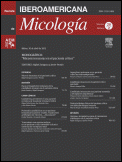
REVISTA IBEROAMERICANA DE MICOLOGIA
Cultivating Insights in Mycology for Global HealthREVISTA IBEROAMERICANA DE MICOLOGIA, published by the ASOCIACION ESPANOLA MICOLOGIA-AEM, is a vital resource for those engaged in the study of mycology and infectious diseases. With a history spanning from 1996 to 2024, this journal is committed to advancing knowledge in the field through the dissemination of high-quality research articles, reviews, and case studies. Although it currently features a Q3 ranking in Infectious Diseases and a Q4 ranking in Microbiology for 2023, its impact is significant given the niche focus it serves, catering to a specialized audience of researchers and practitioners. While access is not open, the journal continues to be a preferred platform for scholarly communication among professionals in Spain and beyond. The editorial office, located in Bilbao, serves as the hub for rigorous peer-review and publication processes, ensuring that the latest advancements and findings in the field of mycology are effectively shared within the scientific community.
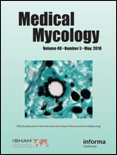
MEDICAL MYCOLOGY
Illuminating the Pathways of Fungal PathogenesisMEDICAL MYCOLOGY, published by Oxford University Press, is a premier journal dedicated to the study of fungal infections and their clinical implications. With an ISSN of 1369-3786 and an E-ISSN of 1460-2709, this journal has established itself as a vital resource in the fields of Infectious Diseases and Medicine, holding a respectable Q2 ranking for both categories and a Q1 ranking in the veterinary sector in 2023. Spanning a rich history from 1962 to 2024, MEDICAL MYCOLOGY serves as a platform for innovative research, case reports, and review articles that contribute to the understanding and management of mycological diseases. The journal's commitment to advancing knowledge is reflected in its Scopus rank of #120 out of 344 in Medicine - Infectious Diseases, positioning it within the 65th percentile. With open access options available, it aims to ensure that critical research is accessible to a global audience, enhancing collaboration and knowledge sharing among researchers, healthcare professionals, and students alike.
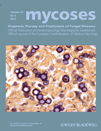
MYCOSES
Pioneering research for a healthier tomorrow.MYCOSES is a renowned academic journal published by Wiley, specializing in the fields of Dermatology, Infectious Diseases, and general Medicine, with a commendable focus on mycological research and its clinical implications. Established in 1957, this journal has significantly contributed to advancing our understanding of fungal diseases, offering a platform for high-quality research that ranks among the top in its categories—achieving Q1 status in Dermatology and Q1 in Medicine (miscellaneous), while maintaining a strong Q2 ranking in Infectious Diseases. With an impressive Scopus ranking of #5 in Medicine - Dermatology, MYCOSES occupies a pivotal position in the dissemination of critical findings and innovative practices within the scientific community. Although it is not an open-access journal, MYCOSES continues to attract a wide array of researchers, professionals, and students seeking to enhance their knowledge and keep abreast of the latest developments in mycology. Overall, MYCOSES not only serves as an essential resource for academia but also plays a vital role in shaping future research directions and clinical approaches to fungal infections.
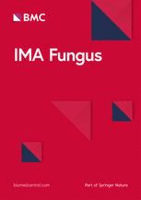
IMA Fungus
Pioneering Discoveries in Agricultural and Biological Sciences.IMA Fungus is an esteemed open-access journal published by BMC, dedicated to advancing research in the fields of fungi, plant sciences, and ecological systems. With an ISSN of 2210-6340 and E-ISSN 2210-6359, this journal has been an influential platform since its inception in 2010, contributing significantly to the scientific community in the United States and beyond. The journal’s remarkable impact can be seen in its Q1 quartile rankings across multiple categories, including Agricultural and Biological Sciences, Ecology, Evolution, Behavior and Systematics, and Plant Science, positioning it among the top literary sources in these fields. Notably, IMA Fungus holds impressive Scopus rankings, with the Agricultural and Biological Sciences category placing it in the 98th percentile, evidencing its crucial role in disseminating impactful research. Given its commitment to fostering accessibility and collaboration, IMA Fungus continues to be an invaluable resource for researchers, professionals, and students aiming to explore and understand the complex roles of fungi within various ecosystems.
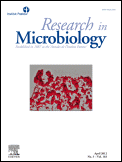
RESEARCH IN MICROBIOLOGY
Connecting researchers with cutting-edge findings in microbiology.Research in Microbiology, published by Elsevier, is a prominent academic journal devoted to advancing the field of microbiology, encompassing a diverse array of topics including immunology, molecular biology, and biochemistry. Established in 1987, the journal has expanded its focus over the years, with a commendable impact factor reflecting its relevance and influence in the scientific community. Although it does not currently offer open access options, Research in Microbiology remains a crucial resource for researchers and professionals seeking to stay abreast of the latest findings and methodologies. The journal holds a respectable Q2 ranking in Medicine (miscellaneous) and a Q3 ranking in both Microbiology and Molecular Biology for 2023, highlighting its position within the scholarly landscape. With its base in France and accessible to a global audience, Research in Microbiology continues to foster scholarly exchange, making it an essential platform for the dissemination of impactful microbiological research.
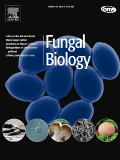
Fungal Biology
Fostering Collaboration in Fungal Research and ApplicationsFungal Biology, published by Elsevier Science Ltd, is a premier journal dedicated to advancing the field of mycology and its interdisciplinary applications. With an ISSN of 1878-6146 and E-ISSN 1878-6162, this journal serves as a vital platform for researchers and professionals interested in the ecological, evolutionary, and genetic aspects of fungi, as well as their implications in infectious diseases and plant sciences. As of 2023, it proudly holds a Q2 ranking in Ecology, Evolution, Behavior and Systematics and Plant Science, and a Q3 ranking in Genetics and Infectious Diseases, highlighting its significant contribution to these domains. The journal boasts an impressive Scopus rank, including a percentile of 83rd in Ecological studies, ensuring that published research reaches a wide audience and impacts ongoing discourse in the field. With open access options, Fungal Biology encourages the dissemination of high-quality research, aimed to foster collaboration and innovation among scholars and practitioners. With its convergence of knowledge from 2010 to 2024, this journal is instrumental for those advancing the understanding of fungal biology and its myriad applications in environmental and health sciences.

Current Fungal Infection Reports
Connecting researchers to combat fungal infections.Current Fungal Infection Reports is an essential academic journal dedicated to the rapidly evolving field of mycology, specifically focusing on the diagnosis, treatment, and epidemiology of fungal infections. Published by Springer, this journal aims to provide a comprehensive platform for researchers, healthcare professionals, and scholars to disseminate groundbreaking findings and insights into the complexities surrounding fungal diseases. With an ISSN of 1936-3761 and an E-ISSN of 1936-377X, the journal is recognized in the Q3 category for Infectious Diseases as of 2023 and holds a Scopus rank of #199 out of 344 in its field, showcasing its growing influence. Although not currently open access, Current Fungal Infection Reports remains an important resource for those wishing to stay updated on key developments and trends within this critical area of global health. Through its commitment to advancing knowledge and fostering academic exchange, the journal plays a crucial role in combating the challenges posed by fungal infections, making it a must-read for anyone involved in infectious disease research and treatment.
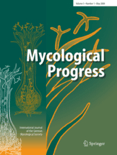
MYCOLOGICAL PROGRESS
Leading the charge in mycological discoveries and applications.MYCOLOGICAL PROGRESS, published by SPRINGER HEIDELBERG, is an esteemed journal dedicated to advancing the field of mycology and associated biological disciplines. With an ISSN of 1617-416X and an E-ISSN of 1861-8952, this journal has established itself as a leading source of high-quality research, evidenced by its impressive rankings in the Q1 quartile across various categories such as Agricultural and Biological Sciences, Ecology, and Plant Science. As of 2023, MYCOLOGICAL PROGRESS ranks 37 out of 193 in Agricultural and Biological Sciences (miscellaneous) and 183 out of 721 in Ecology, demonstrating its significant impact in the ecosystem of scientific literature. This journal not only aims to disseminate innovative research findings but also strives to foster interdisciplinary collaboration among scientists, ecologists, and agriculturists around the globe. While retaining a traditional model of publication, MYCOLOGICAL PROGRESS remains crucial for those seeking to deepen their understanding of fungal biology and its broader environmental implications.